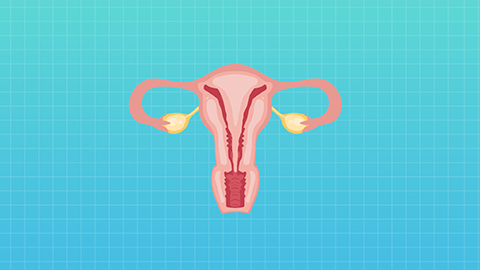What is a septate uterus?
Generally, septate uterus may be caused by genetic factors, abnormal fusion of the Müllerian ducts during embryonic development, intrauterine infection, intrauterine adhesions, endometritis, and other factors. If discomfort symptoms occur, prompt medical consultation at a regular hospital is recommended. Detailed analysis is as follows:
1. Genetic Factors
Genetic inheritance can affect the development of reproductive organs. If there is a family history of uterine developmental abnormalities, the likelihood of female offspring developing a septate uterus increases. Women with a family history should undergo uterine-related examinations early, such as ultrasound or hysteroscopy.
2. Abnormal Fusion of Müllerian Ducts During Embryonic Development
During embryonic development, the Müllerian ducts are important structures in the formation of female reproductive organs. If their fusion process deviates, it can lead to the formation of a uterine septum, which is the main physiological cause of septate uterus. If there are no symptoms such as menstrual irregularities or infertility, specific treatment is usually unnecessary.

3. Intrauterine Infection
Infection caused by pathogens such as bacteria or viruses invading the uterine cavity can disrupt the uterine internal environment and affect the normal development of uterine tissue, potentially leading to septate uterus-related issues. Symptoms often include increased vaginal discharge and odor. Anti-infective medications such as cefuroxime axetil tablets, azithromycin dispersible tablets, and metronidazole tablets should be used under a doctor's guidance.
4. Intrauterine Adhesions
Improper uterine cavity procedures or infections can lead to intrauterine adhesions. Adhesive tissues can alter the normal structure of the uterus, potentially causing septate uterus-related problems, which may present with symptoms such as reduced menstrual flow or abdominal pain. For mild cases, drug treatment under medical guidance, such as estradiol valerate tablets, progesterone soft capsules, and aspirin enteric-coated tablets, may be used to promote adhesion release and endometrial repair. For severe adhesions, hysteroscopic surgery is required to separate the adhesions, followed by follow-up examinations as instructed by the doctor.
5. Endometritis
Inflammation affecting the endometrium can cause congestion and edema. Long-term inflammatory stimulation may affect the normal shape of the uterus, increasing the risk of septate uterus-related issues, potentially causing symptoms such as lower abdominal pressure and fever. Medications such as doxycycline hyclate tablets, clindamycin capsules, and cefaclor capsules should be used under a doctor's guidance.
In daily life, attention should be paid to maintaining sexual hygiene and avoiding unclean sexual practices; unnecessary intrauterine surgeries should be reduced to minimize the risk of uterine injury; regular moderate exercise, such as jogging or yoga, should be maintained to enhance immune function.






